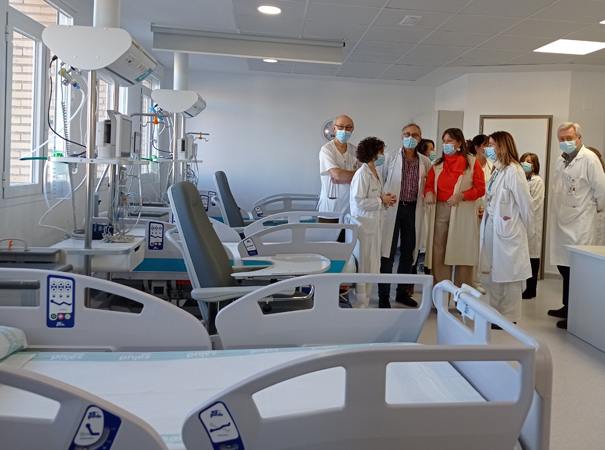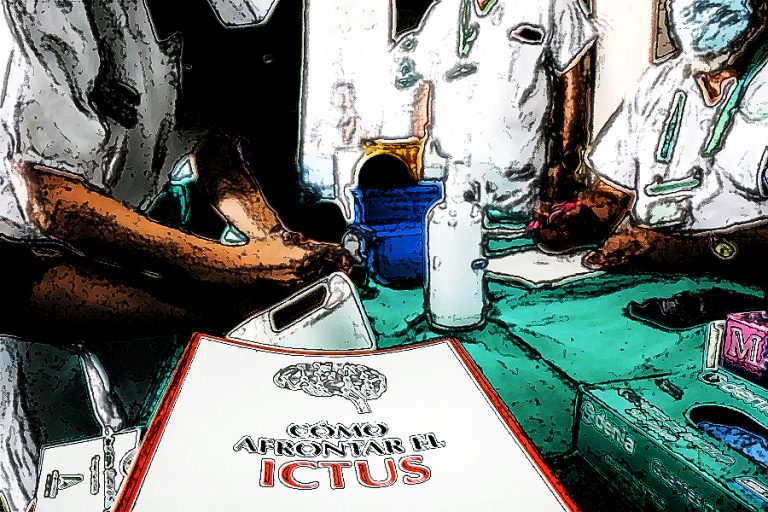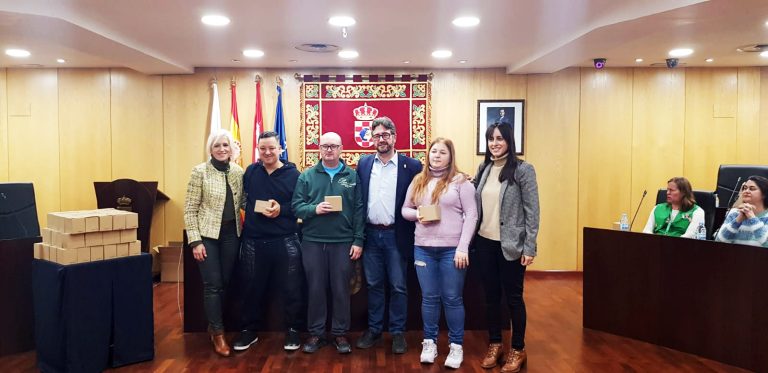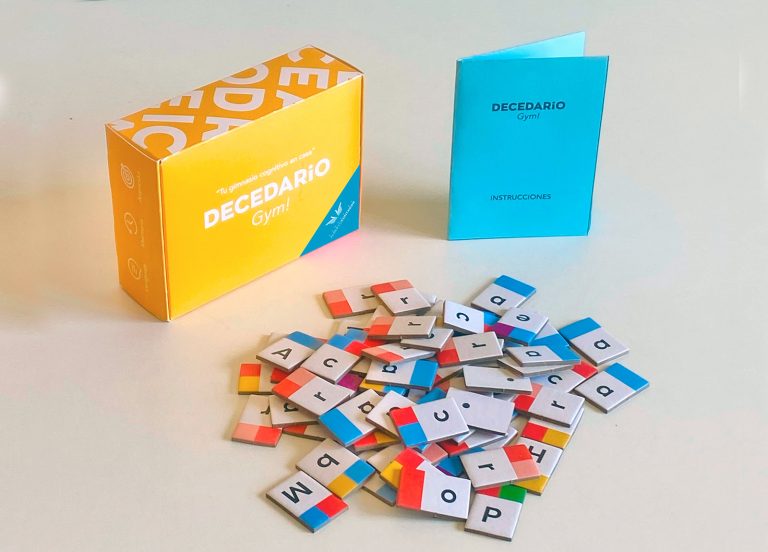More beds and better services in the new stroke unit of the Miguel Servet Hospital of Zaragoza

The Miguel Servet University Hospital in Zaragoza opened a new stroke unit on Friday 20th January with more comforts for the patient and a new way of working focused on more personalised care. The Unit has been enlarged from 5 to 10 beds and provides spaces with natural light for all patients, more comfort, updated facilities, adjustable lights in tones that help to improve sleep, reduced ambient noise… “And the change from the current unit to a larger one is also an opportunity to change the ways of working and organise the care circuits with the patient in mind”, points out Javier Marta, head of the Neurovascular section of the Neurology service of the HUMS.
For Dr. Marta, “the big change is to improve care in what is now called patient experience and humanisation of care”. In this sense, emphasis is placed, for example, on measures to increase comfort, privacy and sleep care. “And another facet of this humanisation of care consists of making the patient a participant in their process, so that they are well aware of what has happened to them and what they can do to try to prevent them from having a bad evolution,” the doctor stresses. The neurologist stresses that this process of “health literacy” is a commitment to the co-responsibility of the patient in the care process.
The Stroke Unit was created in 2007 and in recent years has attended between 580 and 600 patients per year. Tomorrow, Friday, it will move from floor 7 to floor 4 to a total space of 250 m2. The rest of the Neurology speciality will also occupy the entire 4th floor. The Unit’s moves are being carried out in two phases.
The operation of the Unit is not only focused on the care aspect, but also includes teaching and research. In this sense, the team belongs to the Research Network of Excellence of the Carlos III Institute (RICORS). The clinical group associated with the Servetus Network will focus on the study of post-stroke cognitive impairment. Until now, health care has focused more on the motor consequences that a patient may suffer after a stroke (loss of movement, walking difficulties, loss of speech…). “But there are other more subtle but no less important consequences, such as post-stroke depression, lack of motivation and cognitive impairment,” he concludes.
More information.




